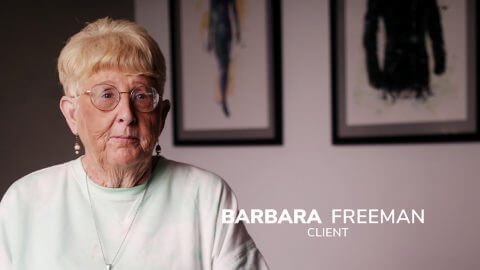What is a Personal Injury case?
A personal injury case may arise when someone has been hurt or injured due to the fault of another. Personal injury cases take on many forms and can include car crashes, slip and fall accidents, construction site accidents, wrongful death, motorcycle accidents, Uber and Lyft accidents, trucking collisions, dog bites, scooter accidents, assault and battery, bicycle accidents, defective and dangerous products and many more. If you have been hurt or injured because of someone else’s fault or wrongdoing, you may have a personal injury case against another person, a company, a business, or a public government entity, such as a city, county, state, or school district.
What we do
Our team of skilled lawyers will immediately review your accident and injuries and let you know whether you have a personal injury case. At Savin Bursk Law, your case will always be evaluated by an experienced personal injury attorney – not by an intake call center or a non-attorney case manager. If our lawyers take your case, you can rest assured we will do whatever it takes to obtain the best possible result for your case, while you focus on what’s most important – your health. Once we take on your case, our team of experienced trial lawyers and litigators will see your case through from start to finish.
Because we work up our cases from scratch as if they will be heard in a courtroom before a judge and jury, we get top dollar on our cases – whether that is paid as a settlement or a trial verdict. The size, prestige, or financial strength of an adversary is never a deterrent to our pursuit for justice. Because we limit the number of cases that we accept, our team is able to provide laser sharp focus on your case and put in the time, effort, and resources for maximum results. Meet our seasoned team of trial lawyers and litigators to turn the tide of your case.
Speak with one of our personal injury lawyers for a free personalized case consultation.
Settlement Vs. Trial
Clients often ask whether we recommend a settlement or whether we should take the case to trial. We will do our best to explain the pros and cons of accepting or rejecting any settlement offer. We will give you the harsh truth about your case and its likelihood of success at trial. As your attorneys, we try to guarantee as much compensation as possible without putting our client at risk.
A well-known saying is “a bird in the hand is better than two birds in a bush.” This is often true in the majority of our cases. On average only 5% of our cases go to trial because most cases settle before trial. Cases may settle very early in the case, at a settlement conference, at mediation, at the eve of trial, or even in the middle of trial. We know when a case needs to or should settle, and what is a reasonable amount. We will never undersell your case and we ask for our clients trust in our advice in regards to a settlement.
Pros of settling your case include:
- A settlement guarantees monetary outcome
- Settlements resolve more quickly than trial
- Settlements are more cost effective than trial
- Settlement money is usually received more quickly than the time it takes to go to trial
- Attorney fees and other costs are significantly reduced with a settlement
- Settlements are typically private
Cons of settling your case include:
- Monetary awards for settlements may be smaller than what a jury would award for damages
- The defendant usually does not admit any wrongdoing
Trial is a risky proposition and a calculated risk. Any trial lawyer can tell you that juries and judges are unpredictable and can drastically change from court house to court house. Prior to taking any case to trial our office routinely runs mock trials to test our theories on volunteer jurors, and the remarkable thing is that the same case and facts presented to three different volunteer groups may come up with three drastically different opinions of the case.
Pros of taking your case to trial include:
- Jury awards are can be larger than the amount offered during settlement negotiations
- Trials are public record, so the defendant will be held accountable if the jury awards in your favor
Cons of taking your case to trial include:
- Even if a case seems clear cut, your success at trial isn’t guaranteed. The parties lose all control over the outcome with a jury
- Trials are lengthy and time-consuming
- Trials are expensive
